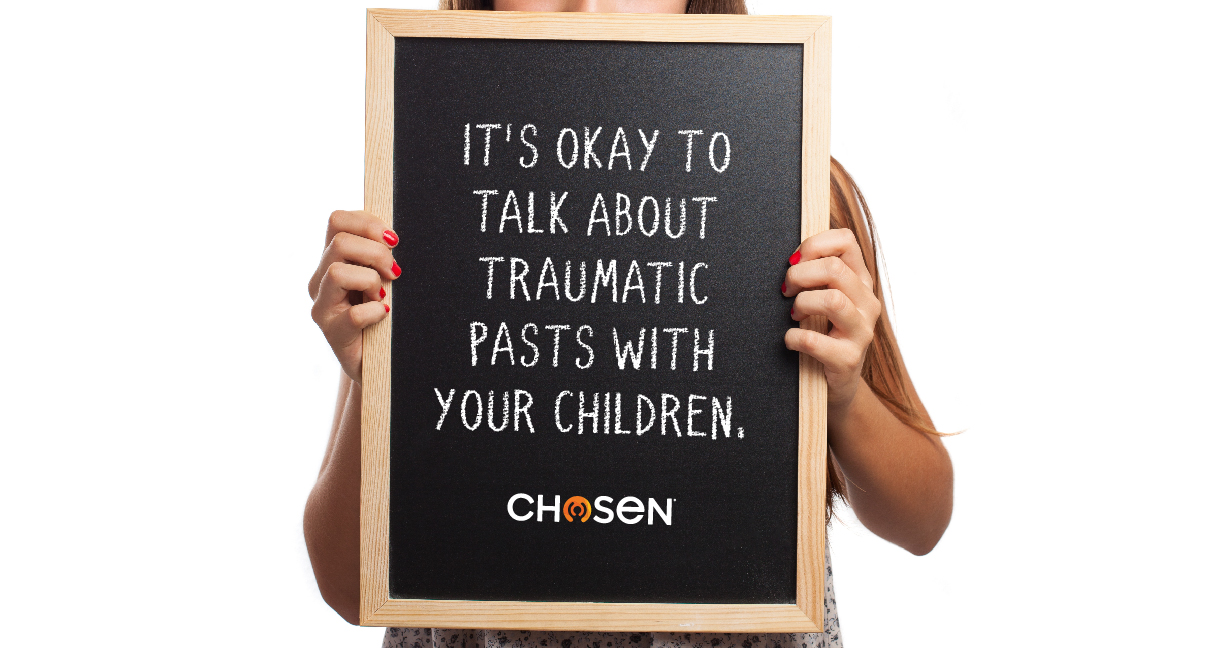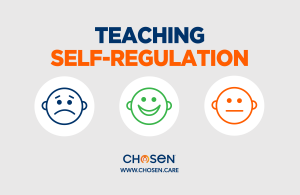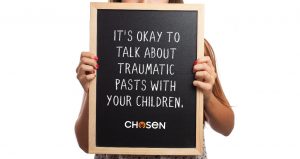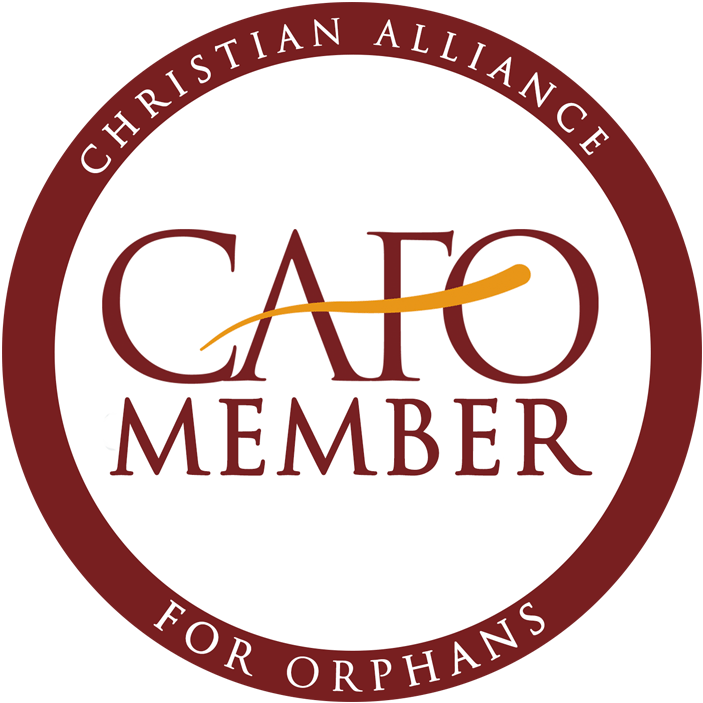“We are, as a species, addicted to story. Even when the body goes to sleep,
the mind stays up all night, telling itself stories.”Jonathan Gottschall
Stories. We love the stories we find in books and movies.
We love the stories we find in books and movies. Our culture spends significant amounts of time and money on binge-watching the latest hit series. Thrillers keep us waiting for what happens next. Mysteries encourage us to mentally solve the crime. Dramas make us cry. Stories of romance put smiles on our faces. Fairy tales give us hope.
And yet, when it comes to hearing the hard stories of children who have experienced hard things in their short lives, we pull away. When it comes to the children we are parenting, we only want their stories to be fairy tales with a happy ending.
Helping foster and adopted children gain a strong understanding of their hard histories is an essential part of healing from trauma, abuse and neglect, but it is something with which we, their parents, struggle. The very people who should be guiding them through looking at their stories through the lens of grief, acceptance and repair typically don’t want to do it. Fear keeps us frozen.
- We are afraid of reminding them of their past
- We are terrified to assist with grieving
- We fear talking about what seems hard
Reminding
It’s human nature to run from pain. As parents, it’s our job to keep our children safe and shelter them from what can hurt or harm. It therefore makes total sense that we would not want to willingly remind children of hurt they have endured. We tell ourselves that, if we bring up their pasts, our children will be reminded of what they have been through. The truth is, that we do not control what’s happening in our children’s brains. Sights, smells and sounds can trigger a memory in our children over which we have no control. Our children’s brains remember what they’ve been through whether we bring up the past or not.
So, how do we help our children grieve?
Grieving
Humans are complex beings with many emotions. Sadness is one that makes us uncomfortable. We must let our children feel grief at what happened to them. If we don’t give them a safe environment to express that grief, they will enter adulthood with depression, anxiety and physical symptoms that result from masked grief. We tend to want that grief to be processed only in a therapist’s office. Certainly, therapy is a crucial tool in helping a child heal from hurt they have experienced, but grief in children doesn’t only bubble up in the therapist’s office. Sights, smells, and sounds cause reminders of the past that invite grief to show up at the dinner table, walking down the street, or playing ball. Dr. David Cross of the Karyn Purvis Institute of Child Development says, “Children who have been harmed in relationship can only heal in the context of relationship.” For the children that we have welcomed into our families in order to love, nurture and raise, we must not ignore the importance of helping them grieve the things that happened to them before they entered our families.
However, helping children grieve does not seem natural. It’s hard for us.
Talking
When it comes time to have these conversations with our children about their stories, we become scared that we aren’t going to know what to say to them. Here’s the great news: you don’t have to know the perfect thing to say. If you approach the conversation with compassion and curiosity, your children will remember your presence more than they will remember your words.
However, helping children grieve does not seem natural.
It’s hard for us.
1.) Ask them questions.
When it comes time to have these conversations with our children about their stories, we become scared that we aren’t going to know what to say to them. Here’s the great news: you don’t have to know the perfect thing to say. If you approach the conversation with compassion and curiosity, your children will remember your presence more than they will remember your words.
2.) Wonder with them.
Tara Vanderwoude teaches that beginning statements with the phrase “I wonder…” can help open up the conversation with children to talk about hard things. Statements like “I wonder if you ever want to visit your birth mom.” or “I wonder how you felt when you were left alone.” are easy ways to bring up hard subjects and make a child feel safe to talk. Also, being curious about a bad attitude or challenging behavior can often be tied to a child being suddenly reminded to a bad memory. Asking, “What just happened? Were you just reminded of something scary?” can open up the door for conversations that is greatly needed.
3.) Be the voice they need. .
Children who have been hurt by trauma, abuse and neglect at the hands of adults and governmental systems need adults to tell them that what happened was not okay. They need to hear it was not their fault. They need to know that not every adult in the world is a bad person, and how to look for the safe and loving people. Children need to understand that they survived what they endured, that they are safe now, and that their experiences are moving them toward a place of resilience. They need a reminder that we, their parents, will be right beside them on their path toward healing.
Michael Cunningham, Pulitzer-prize fiction writer says, “We become the stories we tell ourselves.” If we tell ourselves that if our children aren’t talking about their pasts, they aren’t thinking about their pasts, we are fooling ourselves that our children are okay. Instead, if we can find the courage to begin the conversations, or even engage in a discussion when it’s clear there is a reminder of something really hard, our children will be closer to healing from their difficult pasts. Don’t fall into the trap of only focusing on providing a happy ending for your foster or adopted child. When we do that, we rob our children of their own stories that belong to them, not us.
For more information, check out one of our favorite books by Jayne Schooler called Telling the Truth to Your Adopted Child











